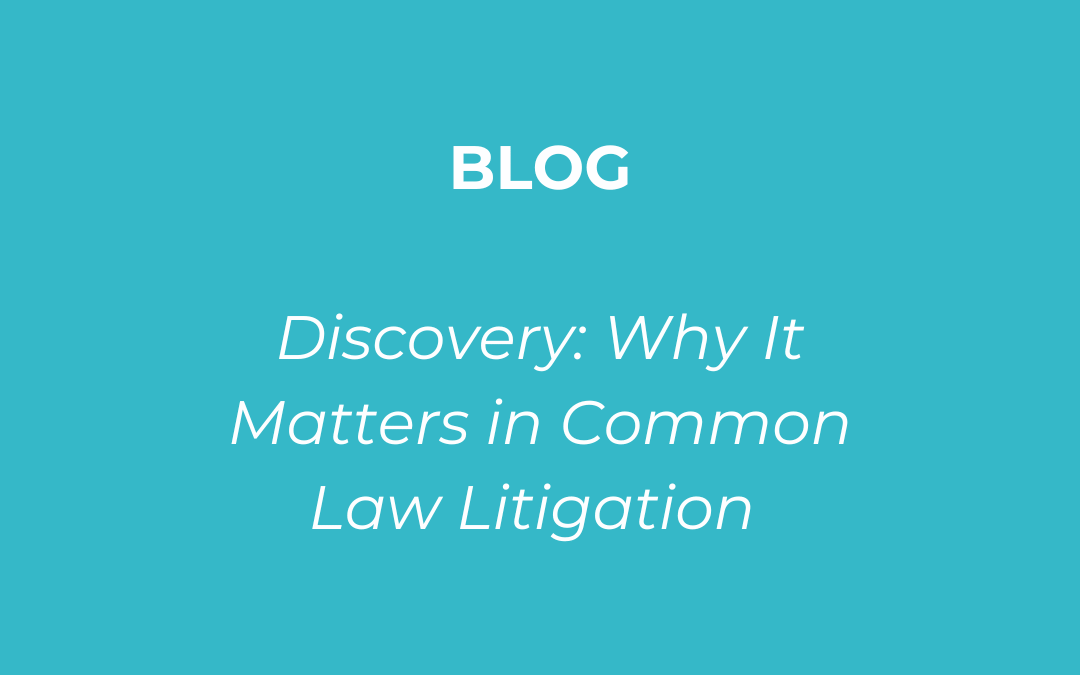Blog Post 6 – Discovery: Why It Matters in Common Law Litigation
For Brazilian lawyers, one of the most striking differences when dealing with common law jurisdictions is the concept of discovery. Unlike Brazil’s civil procedure, where judges control the evidence phase and the scope is relatively narrow, discovery in the U.S. (and to varying degrees in the UK and other common law systems) is broad, party-driven, and often decisive.
What Is Discovery?
Discovery is the pre-trial process where parties exchange information and evidence relevant to the dispute. It includes:
-
Interrogatories – written questions answered under oath.
-
Depositions – oral testimony of parties or witnesses before trial.
-
Requests for production – demands for documents, emails, and data.
-
Requests for admissions – asking the opposing party to confirm or deny specific facts.
This process aims to prevent “trial by ambush” and ensure both parties know the case they have to meet.
Why It Matters for Brazilian Lawyers
For Brazilian practitioners handling cross-border disputes, discovery can come as a shock:
-
Volume of evidence – common law discovery can involve millions of pages of documents, particularly in corporate or IP litigation.
-
Costs – discovery is often the most expensive part of litigation in the U.S.
-
Strategy – discovery shapes settlement negotiations and trial strategy.
-
Disclosure duties – in the U.S., parties have affirmative obligations to disclose relevant information, even if harmful to their case.
By contrast, in Brazilian civil procedure, judges determine the admissibility and scope of evidence, and parties cannot demand such wide-ranging disclosure from each other.
Key Vocabulary and Usage
-
To produce documents = entregar documentos na fase de discovery.
-
Depose a witness = tomar o depoimento de uma testemunha fora do tribunal.
-
Compel discovery = obter ordem judicial obrigando a parte a entregar provas.
-
Protective order = ordem judicial limitando ou restringindo o alcance do discovery.
Grammar & Usage Nugget
Verb–Noun Collocations with “evidence”
-
Submit evidence – entregar provas ao tribunal.
-
Suppress evidence – impedir que provas sejam usadas.
-
Adduce evidence – apresentar provas formais (mais técnico).
-
Examine evidence – analisar provas apresentadas.
Expert Tip: Pay attention to how verbs change the nuance. Submit is neutral, suppress implies illegality, and adduce is a formal legal verb commonly seen in judgments.
Closing
Understanding discovery is essential for Brazilian lawyers working on international disputes, arbitration with U.S./UK counterparts, or cross-border compliance. It is not only a procedural step, but rather a strategic tool that often determines the outcome of litigation.
